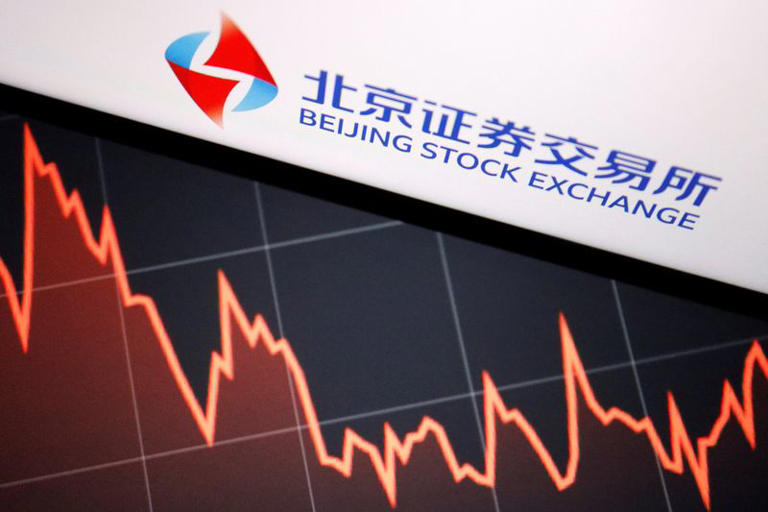In the first half of the year, China’s quantitative (quant) hedge funds, which rely on complex algorithms and high-frequency trading strategies, experienced notable difficulties. These challenges have not only led to significant financial losses but also triggered a major reshuffling within the $200 billion industry. As a result, some funds are contemplating exiting the market, highlighting the sector’s current struggles and its need for adaptation.
Performance and Market Impact
Quant hedge funds that trade China’s onshore A-shares faced an average loss of 8.6% during the first half of the year. This decline contrasts sharply with their performance in 2023, when they managed to achieve a gain of 3.2%. The losses were particularly severe for funds tracking the small-cap CSI 1000 Index, which saw their value drop by 14%. This sharp downturn reflects a broader struggle within the quant sector, especially as these funds have been heavily impacted by recent market dynamics and regulatory changes.
Onshore equity hedge funds, which employ more traditional stock-picking approaches, reported a comparatively modest loss of 3%. This disparity in performance underscores the difficulties faced by quant strategies, which have been less effective in the current market environment compared to more conventional investment approaches.
The turmoil began in February, an event now referred to as China’s “quant quake.” During this period, many quant funds suffered substantial losses due to a sudden shift in market sentiment. State-backed investors started to favor large-cap stocks over the small-cap stocks that many quant funds had been heavily invested in. This shift created a significant challenge for quant funds, which struggled to adapt to the rapid change in market dynamics.
Regulatory and Market Reactions
The regulatory environment for quant trading in China has become increasingly stringent in response to the challenges faced by the industry. The China Securities Regulatory Commission has issued warnings about the advantages that quantitative funds may hold over retail investors. To address these concerns, the commission has implemented stricter rules on trading practices. These new regulations include limitations on short-selling and high-frequency trading, both of which are integral to many quant strategies.
These regulatory changes have had a profound impact on the quant hedge fund industry. By mid-2024, the number of quant hedge funds in China managing assets exceeding 10 billion yuan ($1.37 billion) had decreased to 30, down from 32 at the end of 2023. This reduction highlights the challenges that quant funds face in adapting to the new regulatory landscape and the broader market environment.
Industry Perspectives
Industry experts are closely monitoring the situation and evaluating its implications for the future of quant funds in China. Jonathan Caplis, CEO of PivotalPath, observed that recent market movements and regulatory changes have created significant obstacles for quant funds. He expressed concerns that the new short-selling reforms would further hinder the viability of quantitative strategies, making it increasingly difficult for these funds to thrive.
Patrick Ghali, managing partner of Sussex Partners, pointed out the cautious approach investors are adopting toward China. Despite the country’s vast market potential, investors are wary of navigating the complexities of the evolving regulatory environment and market conditions. This cautious stance reflects broader concerns about the sustainability of quantitative strategies in the current market context.
Erin Wu, head of investor relations at OP Investment Management, suggested that the February quant crisis served as a rigorous stress test for the industry. She indicated that the funds capable of adapting and recovering from this downturn will be those that can distinguish themselves in the future. The ability to navigate these challenges effectively will be crucial for the long-term success and stability of quant hedge funds in China.
Conclusion
The difficulties faced by Chinese quant hedge funds underscore the broader challenges within the industry as it grapples with shifting market conditions and increased regulatory scrutiny. The sector’s ability to adapt to these changes and effectively manage the new regulatory landscape will be critical in determining its future trajectory. As the industry undergoes restructuring, the focus will be on how well these funds can recover and position themselves for success in an increasingly complex investment environment.
